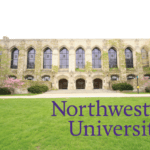July Membership Spotlight
Illinois Campus Compact (ILCC) is excited to welcome and spotlight our new member institution, Wilbur Wright College. In an interview with Gabe Estill and Merry Mayer, we found out all the amazing things Wright College is already doing in terms of civic engagement and learned some of their future plans.
One of the first benefits of ILCC that Wright College will be taking advantage of is our AmeriCorps VISTA Program. Wright is currently accepting applications for a VISTA to start a yearlong year of service on August 20th. This VISTA will have a wide range of responsibilities, including assisting service-learning coursework and facilitating partnerships with community based organizations. The VISTA be heavily involved with students by increasing engagement in student led events and programs, and placing students in work-study positions. This AmeriCorps VISTA position is perfect for someone looking to gain experience working in higher education and serve a Chicago community.
This fall, Wright College will have twenty three service learning courses available for students. These courses range from Economics to Sex and Gender Studies. No matter the topic though, each course gives students the opportunity to serve their community on campus or off, and ties that service to concepts within the course. Students are engaged with real world problems and actively learn, rather than sitting in a lecture. One exemplarily service learning course had students create website pages for the college and a community based organization. This gives students hands on experience working with a client and additions to their resume, all while helping an organization.
Wright creates many opportunities to encouraged students to think beyond the classroom. Wright College is the only school in Illinois and the only community college in the county that is a partner of the State Department’s Diplomacy Lab program. Diplomacy Lab is a program in which undergraduate and graduate students, under the guidance of professional diplomats, work on global policy issues currently facing the U.S. Last fall, as a part of this program, eleven Wright College students developed proposals to encourage young Albanian adults to get more involved in civic society. These proposals were then chosen to go to the next step and run as pilot programs through the U.S. Embassy in Tirana, Albania.
Merry Mayer, an Assistant Professor of Political Science and one of The Democracy Commitment campus coordinators, gets excited about the many ways Wright College involves students in civic engagement. One of these ways in The Democracy Commitment (TDC). TDC is a non-partisan national organization dedicated to advancing democracy in higher education, and offers a platform for development and expansion of community college programs, projects, and curricula aimed at engaging students in civic learning and democratic engagement. Both Mayer and Gabe Estill are TDC coordinators at Wright.
An especially successful event held by TDC was a deliberate dialogue study. This study brought students together to discuss controversial, often polarizing, topics in a respectful, engaging way. Trained moderators lead a small group of students through a conversation surrounding one specific topic. The deliberative dialogue study is sponsored by The Kettering Foundation and The Center for the Study of Community Colleges.
At the first deliberate dialogue session, Mayer’s American Government course discussed safety and justice. Mayer described this particular group of students as very quiet, during class usually only a few of them spoke up. But to her surprise, during the session her students were incredibly vocal and engaged. Mayer said that giving them a space outside of the classroom, where they could state their opinions respectably, they were able to express themselves and even find common ground. The goal of the discussion was not to change each other’s views, but to understand each other better. Through a survey, Mayer found out that her students felt very positive about the deliberative dialogue session. Mayer and Gabe Estill plan on making these sessions a common re-occurrence, especially as another election season begins this fall.
During the 2016 election Wright College came together to increase civic engagement. Mayer described how many instructors organized their courses towards political involvement and voting. Psychology professors taught classes about the psychology of voting and all that could effects someone’s choice at the polls. Economic courses tackled issues such as how economic trends might affect election outcomes.
Faculty and staff are not the only campus members leading voter outreach. Mayer and Estill described how passionate Wright College’s student government and student groups were. During the last election season the college held a Voting Festival. The festival was a nonpartisan event, completely run by students. Student leaders shared important voter information such as each candidate’s platform and where to vote. The Civic Engagement student groups sponsors talks about important issues, the most recent one on gun violence. There was a collaborative effort on campus to increase voter engagement, an effort that will remerge this fall.
Gabe Estill and Merry Mayer highlighted the fact that much of Wright College’s success in community engagement was due to the passionate groups of students they work with. Their main goal in the next year it to expand their events and programs to reach students that are not always eager about getting involved because their interests or schedule. It’s obvious that Estill and Mayer are holding Wright College to their motto “Education that Works.”
Related Content

Blog
Engaged Campus
Illinois Campus Compact: 2020 Census Upd

Blog
Engaged Campus
January 2019 Spotlight – Illinois

Blog
Engaged Campus
December Membership Spotlight
More Blog
Blog
COVID-19 and the Engaged Campus

Blog
February VISTA Spotlight

Blog
12 Things You Can Do In 10-12 Minutes
 Blog
Blog 